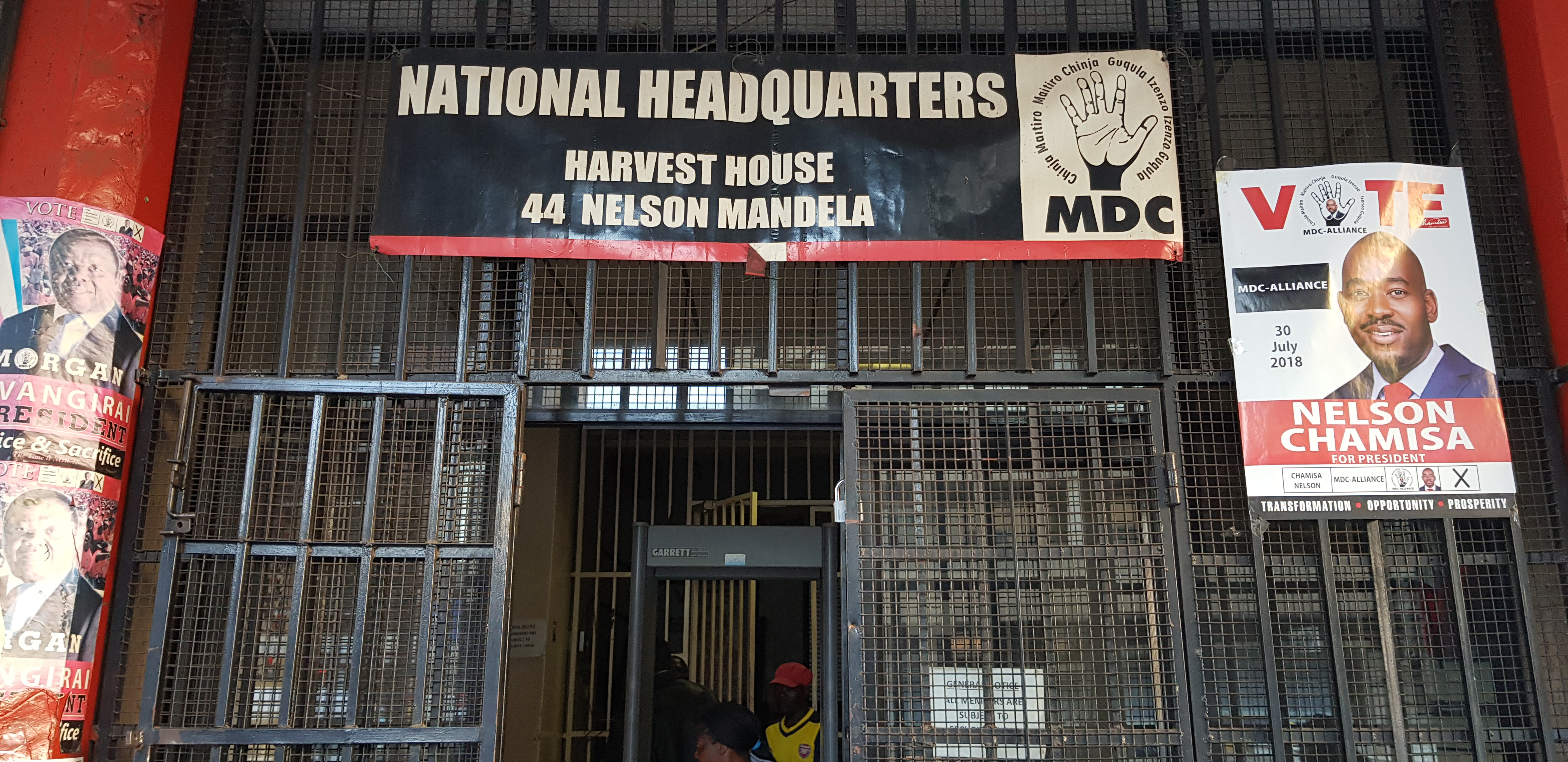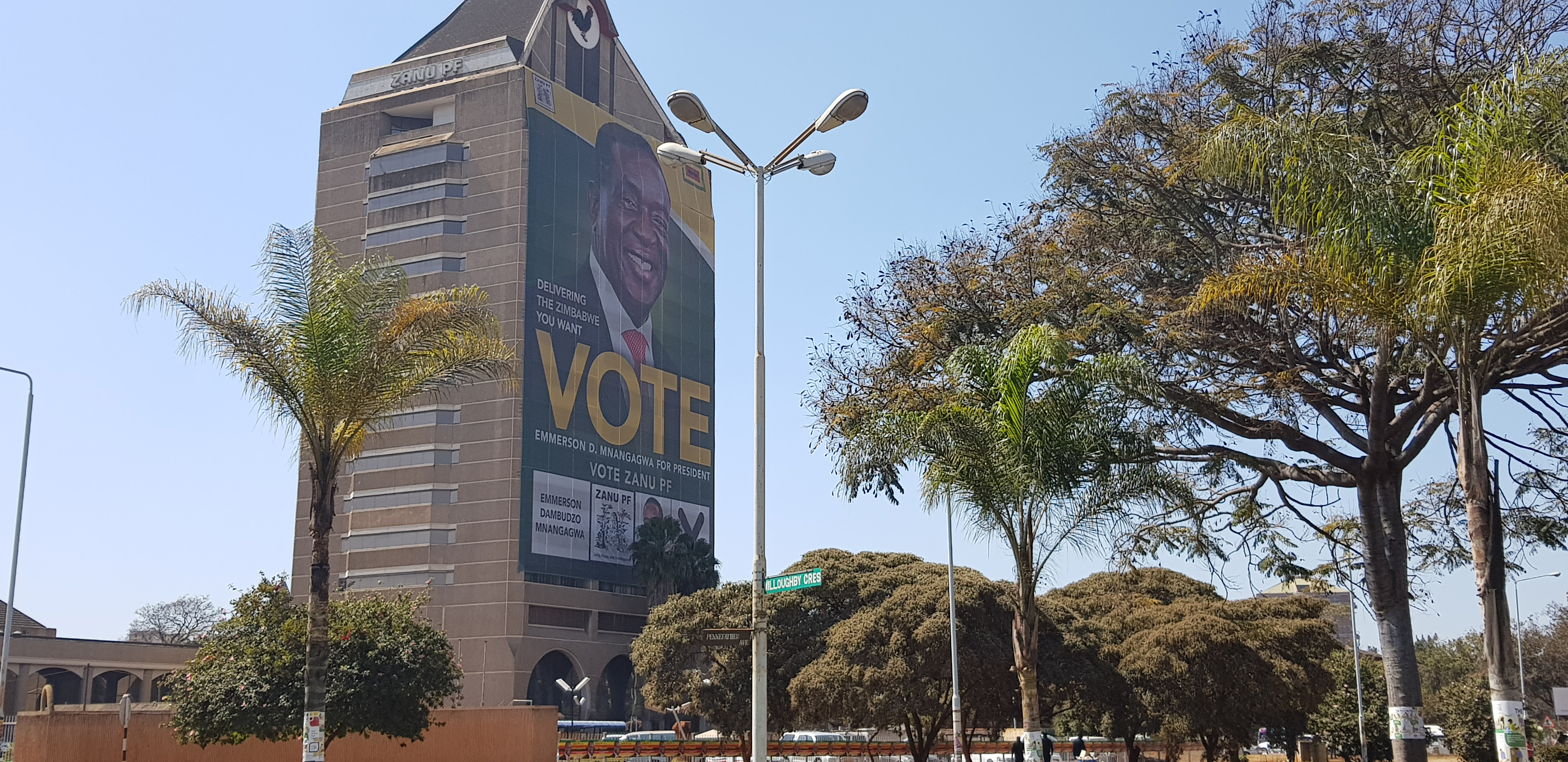OP-ED
Zimbabwe – So you think being in opposition is easy?

Bitter past experience teaches that legal challenges to African elections are a waste of time and that once the results are out and the observers on their way home, it’s all over. And the key lesson is that democracy works in Africa but only when there is democracy.
“They should take them on.” “They must take their struggle onto the streets.” “They have the momentum, perhaps, but not the structure.” “They should raise more money.” “They have no ideological base.” “They should unite; they are too divided.” “I don’t know why they bother, they will never win.” They should, they should, they should … .
Judgements aplenty, a plethora of advice of which a fraction is well-meaning, finances few and far between, fair-weather friendships everywhere, malleable commitments to democracy. Living the life of an opposition party in Africa is not easy, as the fluctuating fortunes of the Movement for Democratic Change Alliance in Zimbabwe show.
Concerned citizens want oppositions to be there, to keep government competitive and accountable, to be able to speak truth to power. But they seldom want to fund them, and are even less enthusiastic to speak out for them, let alone march, protest and put themselves in harm’s way. And there are powerful forces arrayed against them across the continent, notably in the shape of government and its various arms and agencies, but including, also, largely silent and sometimes sinister corporate interests seemingly preferring to cut deals with an entrenched dictatorial regime rather than run the gauntlet of parliamentary opinion and caustic scrutiny – reinforcing the adage, “better the devil you know”.

MDC headquarters in Harare.
The MDC was supposed to build a cohesive anti-government alliance in the face of an extremely determined political foe in Zanu-PF, which had enjoyed nearly four decades in power to cement its authority. The MDC was expected to develop robust party structures along with an election machinery that would monitor and challenge the government behemoth with very little funding and scant media exposure via state-run organs, Not only did it have to take on a ruthless military inseparable from Zanu-PF, but effectively also those interests seeking opportunity and profit in making deals with the ruling party.
The MDC was supposed to come up with a coherent manifesto for reform in the face of a party that has pursued its retention of raw power to the exclusion of national economic well-being and much else. It was expected to behave peacefully knowing that its political rival would not hesitate to take off the gloves if challenged. This reality has again been proven tragically true on Harare’s streets. And it was expected to operate at all times within the electoral law in the knowledge that Zanu-PF would, based on its performance in the 2008 and 2013 elections, not be so constrained, despite the reassuring presence of greater numbers of observers.
There was simply a lot of “previous” between Zanu-PF and the MDC.
This is not to excuse the MDC’s frailties and failings. They, like every other opposition movement, need constantly to up their game to be as effective and efficient as possible. Of course this is very difficult when you are up against a well-resourced political foe, with access to the deep pockets of government. Still, oppositions have to be focused, with a clear platform for change, and a fresh narrative to appeal to voters. And they have to be, at all times, comparatively high energy, courageous and parsimonious.
The MDC was able to do many of these things, against the financial odds. One only had to attend its final rally in Harare last weekend to appreciate this difference with the ruling party. Unlike the concluding Zanu event at the nearby National Stadium where supporters were bused and trucked in and given food, clothing, and placards, MDC supporters at the open-field Freedom Square mostly walked and bought their berets and T-shirts right there. This was a stone’s throw from the Rainbow Towers where khaki-clad international election observers loped around the lobby, and across from Zanu-PF’s ‘Shake-Shake’ HQ.

Zanu-PF headquarters in Harare.
The comparison of the high-rise Zanu building to the run-down MDC HQ at Morgan Richard Tsvangirai House on Nelson Mandela Avenue is startling.
Now, the MDC’s leader Nelson Chamisa and his party have been castigated in some quarters as reckless war-mongers given their claim of victory and rejection of the official election results even before they were announced.
The critics are technically correct. Elections should not work in this way; that is, if there is a credible, free and fair process.
On the surface, while the voting was peaceful and apparently harmonious, underneath the opposition alleges an “industrial scale rig”. MDC claims centre on the absence of V11 result forms in as many as one-fifth of the nearly 11,000 voting stations, the removal of V11s at certain stations after being posted, the use of food aid to bribe rural voters, the worrying discrepancy between civil society parallel tabulations and the official results, and, most of all, the slowdown in the announcement of results, usually a tell-tale sign that the fix is in.
The counting should not, at least in the digital age, take much longer than the voting procedure.
The MDC kicked over a hornet’s nest in protesting the outcome of the elections, at the heavy cost of human life. But its options were limited in the face of what it claimed was clear evidence of a rig. Should it revert to the courts, just as Hakainde Hichilema did in Zambia in 2016, only to be told on a Friday by the court to come back on a Monday and then be told he was “too late”?
Bitter past experience teaches that legal challenges to African elections are a waste of time and that once the results are out and the observers on their way home, it’s all over.
And the key lesson is that democracy works in Africa but only when there is democracy.
There is, at the outset, a need to get the procedural aspects of democracy right without which progress on the substantive issues, including building an economy outside of commodities and the elite they feed, to create jobs in the process, is impossible.
While some of the more slippery customers queuing to do deals with Zanu-PF might like to wish the troublesome MDC away, it is precisely the opposition that protects business interests and guarantees the constitution. Investors should now lament that Zanu apparently possesses a two-thirds parliamentary majority with which it can change the constitution, especially given its track record.
The losers in this flawed process and the violence are once more the Zimbabwean people, who are already, today, twice as poor as they were at independence in 1980. Whatever now transpires, it will not be easy for the Zimbabwe government and its supporters to claim to be liberal democrats. This comes at a cost in terms of future aid and investment flows, loans, growth and development.
There is a measure of blame inevitably to be accepted by all sides, foreign and local.
Elections have involved more than a peaceful day or two of voting and the stating of clear rules for domestic actors about the use and misuse of state resources. There needs to be verification of this on which trust can be built. There has to be a transparent code of conduct during elections for business, for the donors themselves, and for those “consultants” intent on scratching at society’s scabs through a steady infusion of fake news. There must be a level playing field in financial terms, not only for the parties, but for the training of activists and voter education programmes.
For all of the MDC’s mistakes, blind spots and missteps, the truth and reality is that the crisis in Zimbabwe did not start with the election on 30 July 2018. It started 38 years ago with Zanu-PF, which itself remains steadfastly a product of a bitter liberation struggle. To paraphrase Clausewitz, politics in Zimbabwe is still war by other means. DM
Dr Mills heads the Brenthurst Foundation. For the latest updates and other articles by the author please follow the Foundation on Facebook, Twitter or Instagram www.thebrenthurstfoundation.org

















 Become an Insider
Become an Insider